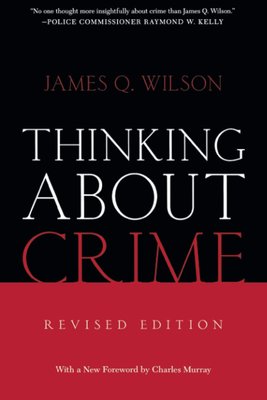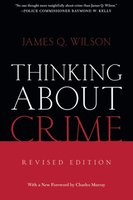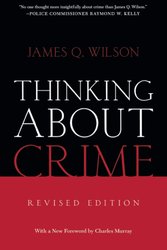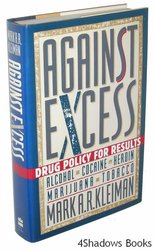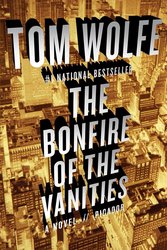Book description
As crime rates inexorably rose during the tumultuous years of the 1970s, disputes over how to handle the violence sweeping the nation quickly escalated. James Q. Wilson redefined the public debate by offering a brilliant and provocative new argument—that criminal activity is largely rational and shaped by the rewards and penalties it offers—and forever changed the way Americans think about crime. Now with a new foreword by the prominent scholar and best-selling author Charles Murray, this revised edition of Thinking About Crime introduces a new generation of readers to the theories and ideas that have been so influential in shaping the American justice system.
Recommended on 1 episode:
The Hidden Politics of Disorder
Crime data has been a flashpoint in this election. Kamala Harris has claimed that violent crime is at a “near 50-year low,” while Donald Trump has insisted that crime is going up. According to the numbers reported to the F.B.I., Harris is right: Crime, especially violent crime, has been falling. But if you look at survey data, Trump is tapping into something people feel. Last year, 77 percent of Americans told Gallup that they believe crime is on the rise.
So what’s going on here? Why, if crime is falling, do people feel less safe?
Charles Fain Lehman, a crime and drug policy researcher at the Manhattan Institute, wrote a piece on his Substack, The Causal Fallacy, on exactly this question. In this conversation, we discuss why he thinks Americans are feeling less safe, despite what the data says, as well as the ideological shifts taking place around drugs and crime, on both the left and the right.
Books recommended:
